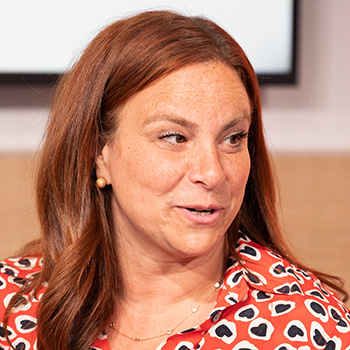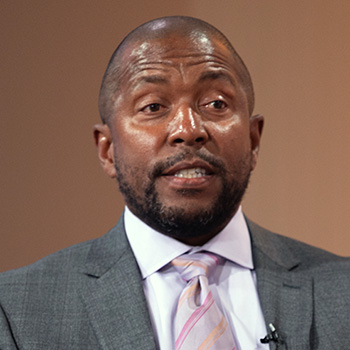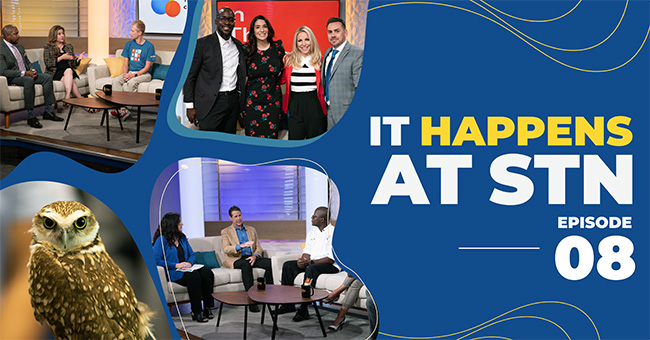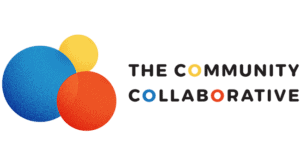Implementing a successful, company-wide strategy for diversity, equality and inclusion (DEI) requires effort, commitment and buy-in. The potential for pitfalls seems to increase proportionally with the size of an organization.
PetSmart’s Vice President of Social Responsibility Joanne Dwyer and Head of Belonging Mark Dompier explain how they built a strong DEI culture for a company with roughly 60,000 employees.
They talk to Hispanic Chamber CEO Monica Reed and CEO of the Black Chamber of Arizona Robin Reed about the creation of a “Week of Belonging,” how to scale DEI to size, and what we should all be learning from the unconditional love of pets.
Watch the Community Collaborative Action Panel
Community Collaborative is part of It Happens at STN, a local news hour dedicated to community growth and actionable solutions.
Each month, business leaders deliver best practices for diversity, equity and inclusion that are effective and applicable.
Action Panelists
Mark Dompier
Head of Belonging – PetSmart
Joanne Dwyer
VP Social Responsibility – PetSmart
Monica Villalobos
CEO – Arizona Hispanic Chamber
Robin Reed
CEO – Black Chamber of Arizona

Building Belonging
We launched our belonging efforts in 2018. Back then we said, “How do we get our distribution centers, our offices, how do we get everyone excited about this? How do you schedule a meeting with 50,000 people?” I don’t remember who it was, but someone said, “Well, what if we did a whole week to celebrate the launch of this work at the, the relaunch of this work that we’re doing around diversity, equity, and inclusion?”
That was really what inspired that first annual Belonging Week. We had our associate resource groups volunteering to do different activities. It’s just truly grown, from that initial kind of kickoff of this work to more of a celebration of how we listen to associates every day and how we work to create a PetSmart where every single associate can proudly say, I belong.
Unconditional Love
I know in my heart that we will never create a place where 60,000 people say, “This is exactly where I belong.” But, what a great aspiration to strive to, right? We’ve not ever lost focus on that, that vision. The other thing that makes us very fortunate, and we’ve talked with partners and we’ve talked with peers in the community, is our vision and our mission is for the love of pets. We support and we welcome so many pets into our stores every day. They don’t care what we look like. They don’t care what our economic status is. They don’t care who we love. They love us unconditionally.
So, reconnecting associates, connecting this journey of belonging back to that passion, that core passion of what connects our associates, what connects our pet parents, what connects our communities, That love of pets is what we tie back to that belonging. Pets love us for who we are. And if we could bring a little bit more of that back into this world as people, I’d like to believe it would be a much better place.
It Takes a Team
When we do get those challenges, different parts of the country, different rules, and regulations. we always tie it back to that love of pets. We tie it back to our, our vision and our values of being united together. That is usually how we get over those hurdles.
This isn’t just an add-on. This isn’t just an extra department that’s staffed by, a handful of people. Although there are some amazing people on this team. It is part of who we are as an organization, which then makes those challenging conversations a little bit easier.

DEI & ESG
When I joined PetSmart about a year ago, it, struck me immediately, it was really palpable, the culture of belonging. That definitely does not happen overnight. I think it grows from the bottom up, and it has to get pushed from the top down. When people talk to us, when we talk to our stakeholders about our environmental and social commitments, the number one thing, it doesn’t matter if you’re a customer, an associate or a business partner, is human capital and how important that human capital is.
Within those list of issues, DEI always rises to the top because even other human capital initiatives need to be viewed through that lens. As the company continues to grow, we know that it’s necessary to continue to embed it not just in our ESG (environmental, social and governance) priorities, but our business growth priorities.
I’m always happy to give advice. But, I always also like learning from others. One of the most important pieces of advice is relying on other resources outside of our own company. For us, [that’s] relying on partners like Robin (Reed) and Monica (Villalobs) to help guide our journey. I don’t think you have to reinvent the wheel on this. We can go look at really positive examples of how this has been successful in other places and leverage those.
I can’t stress enough about how important it is to embed it in the business. But, that’s easier said than done. You have to provide leaders with the tools and the learning and the support. That’s really where Mark (Dompier) and his team come in to be able to help our associates build culture and provide our leaders with the training, education and tools they need, to help use DEI to drive the business forward.

Luxury vs. Necessity
You have to put your money where your mouth is. If you’re an organization, this is not a luxury initiative. This is something that makes companies better. It makes them more innovative. All of the research points to that fact. So when companies espouse this approach it makes them more effective. But for whatever reason, it’s seen as something, as an initiative, as a luxury. It’s siloed in one area.
Just like safety, just like HIPAA in the health community, that was a necessary integration. The same is true here. DEI is a necessity. It’s not a ‘nice to have.’ Companies like PetSmart are ahead of the game because they already have a predisposed culture to acceptance and belonging just by virtue of the industry that they’re in.
I think that’s why we’ve seen so much growth with PetSmart. People want to be there. A great salary is lovely, but I need to know that I belong where I am.
Mission Critical
There’s always going to be pushback regardless of what it is. People want to keep doing what they’re doing and stay in the status quo. So there’s always a little bit of push of the envelope to be able to get to that other side.
DEI, as I mentioned, is no longer a luxury, but it’s also not a soft skill. This isn’t something that’s immeasurable. There are very tangible metrics that can prove that. People have a really hard time arguing with metrics. What gets measured gets done.
That’s the important thing as companies look to implement this: How can we see that return and how can we demonstrate that to leadership so that it continues to get funded and it continues to be seen as something mission-critical to the organization?

In the Beginning
We see that often where it comes from is the way [organizations] design their DEI approach from the beginning. Most companies will hire typically a woman of color to head up DEI. It is a department of one with no clear objective and no budget. They’re not really doing anything. It’s not measurable. So when things get tight, it’s just easy to terminate the employee. That’s actually happening. They’re not really making the commitment.
Investment vs. Expense
We always talk about DEI as if it’s an expense, but it’s not. It’s an investment. Like in companies, where safety is important, safety is not an expense. It’s an investment that is for the benefit of the company, for the people that work within the company, and for the people that are served by the company.
Caring Culture
We’ve all been to companies where employees have to cover tattoos and that sort of thing. I was in a PetSmart, I am a customer because I’m a pet lover, the individual that was helping me had tattoos, I kid you not, from their fingertips to their forehead, and I was curious and I said, “You know, do you get any flack from the company?” They’re like, “Oh no, they don’t care about that. What they care about is how we treat animals, how we treat customers, and how we treat each other.” That’s what it looks like when it works.
At the customer-facing side of the company, they understand that’s when you build a great culture.








